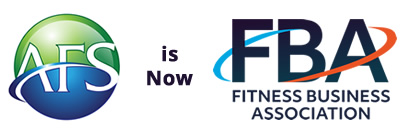 By Matthew Becker, Special FBA Contributor
By Matthew Becker, Special FBA Contributor
As a gym owner, recurring payments and memberships are your business's financial backbone. However, chargebacks—when a customer disputes a charge with their credit card company—can disrupt your revenue, harm your reputation, and lead to unexpected financial losses. Understanding what chargebacks are, why they happen, and how to handle them is essential for protecting your gym’s bottom line.
What Are Chargebacks?
A chargeback occurs when a member disputes a payment with their credit card provider. Instead of contacting your gym directly to resolve the issue, the credit card company steps in to investigate and may reverse the transaction, leaving you without the funds.
Common reasons for chargebacks include:
- Unauthorized Transactions: The member claims they didn’t approve the charge.
- Service Dissatisfaction: The member feels the service didn’t meet expectations.
- Billing Errors: Mistakes such as double charges or incorrect amounts.
- Failure to Cancel: The member believes they canceled but was still charged.
Why Do Chargebacks Happen to Gyms?
Chargebacks can arise in gyms for various reasons, including:
- Ambiguous Membership Agreements: Vague terms around cancellations, refunds, or auto-renewals.
- Poor Communication: Members unaware of renewal policies or payment schedules.
- Disputed Services: Dissatisfaction with classes, trainers, or equipment.
- Forgotten Charges: Members don’t recognize recurring payments on their statements.
By understanding the root causes, you can take steps to prevent chargebacks from happening in the first place.
How to Protect Your Gym from Chargebacks
The best way to handle chargebacks is to prevent them. Here’s
1. Draft Clear Membership Agreements
- Define cancellation policies, refund terms, and auto-renewal details.
- Ensure members sign and acknowledge all terms at the time of enrollment.
- Include a provision requiring disputes to be raised directly with your gym before filing chargebacks.
2. Provide Transparent Communication
- Send reminders for upcoming charges, especially for annual renewals.
- Offer clear instructions on how to cancel memberships or pause services.
3. Maintain Accurate Records
- Keep signed agreements, receipts, and communication logs with members.
- Detailed documentation is crucial if you need to dispute a chargeback.
4. Use Reliable Payment Systems
- Work with payment processors that offer tools for chargeback prevention, such as fraud detection and customer verification.
5. Invest in Customer Service
- Address member concerns promptly and professionally.
- Proactively resolve disputes before they escalate into chargebacks.
How to Dispute a Chargeback
Despite your best efforts, chargebacks can still happen. When they do, here’s how to handle them:
- Act Quickly: Credit card companies have strict deadlines for responding to chargebacks.
- Gather Evidence: Provide signed agreements, proof of service, and communication records.
- Submit a Strong Case: Present clear documentation that shows the charge was valid.
- Follow Up: Work with your payment processor to ensure your case is reviewed thoroughly.
Why Prevention Is Better Than Resolution
While it’s possible to dispute chargebacks, the process is time-consuming and doesn’t always guarantee success. Chargebacks not only result in lost revenue but can also damage your relationship with payment processors if they occur frequently. A proactive approach—through clear agreements, communication, and customer service—saves you time, money, and stress.
Chargebacks are a frustrating but manageable part of running a gym. By drafting rock-solid membership agreements, maintaining open communication, and implementing strong payment policies, you can significantly reduce your risk. When disputes do arise, a well-prepared response can help you recover your funds and protect your reputation.
Need Help Drafting or Reviewing Your Membership Agreements?
At Gym Lawyers PLLC, we specialize in helping gym owners navigate the complexities of chargebacks and other legal challenges. Contact us today to safeguard your gym’s financial health.
Matthew Becker is the founder and lead attorney of Gym Lawyers PLLC, a law firm dedicated exclusively to the legal needs of gym owners. What makes Matt uniquely qualified to serve this industry isn’t just his 15-year experience as a licensed Attorney—it’s his 11 years as a gym owner himself.
In 2013, Matt opened and operated his own CrossFit affiliate, where he experienced firsthand the legal and operational challenges that gym owners face. From managing membership contracts and handling liability waivers to navigating lease agreements and staff issues, Matt lived through every aspect of gym ownership. This deep, personal experience allowed him to spot the significant legal gaps that exist for gym owners and inspired him to create Gym Lawyers PLLC.
Today, Matt combines his legal expertise with his real-world gym ownership experience to help fitness entrepreneurs protect their businesses, stay compliant, and grow with confidence. Since 2021, he has helped hundreds of gym owners across the U.S. in various fitness disciplines, including CrossFit, yoga, martial arts, strength training, and more, through legal education, consultation, and custom legal strategies.
With Matt, gym owners get more than just legal advice—they get insight from someone who has been in their shoes and understands the unique challenges they face.


Join the Conversation!